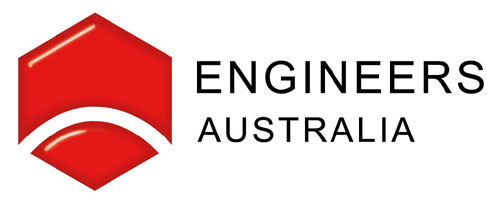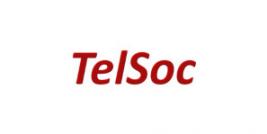KEY DATES
- Late papers accepted - email committee
- Extended paper deadline - 30 September 2022
- Acceptance notification - 15 October 2022
- Final paper deadline - 29 October 2022
- Early bird deadline - 29 October 2022
- Registration deadline - 1 November 2022
- Conference - 30 Nov - 2 Dec 2022
PATRONS

![]()
SUPPORTERS
![]()

SPONSOR
PATRONS

![]()
SUPPORTERS
![]()

Workshops
1st International Workshop on ICT for Combating Climate Crisis (ICT4C3) - click here
Technical Deep Dive into Network Automation with Apstra - click here
Workshop - Juniper Networks - Technical Deep Dive into Network Automation with Apstra
Mr Wataru Nakamae, Juniper Networks,
Topic - Technical Deep Dive into Network Automation with Apstra
Juniper’s Apstra is a modern enterprise grade, commercial implementation of David Cheriton’s vision of vendor-agnostic, full-lifecycle network automation. During this session, we will explore how Apstra reduces operational burden by configuring, monitoring and identifying faults in the network by leveraging key concepts and technologies such as Intent Based Networking, the Single Source of Truth (SSOT) Graph Database, and Intent Based Analytics. The session will include a live demonstration of how a well-engineered network automation system can reduce time and increase efficacy of what would be a complex and potentially troublesome set of tasks without automation. In the session you will learn how a graph database can programmatically represent and visualize the network, as well as watch the graph grow, change and react to configuration changes and events in the network.
Workshop - 1st International Workshop on ICT for Combating Climate Crisis (ICT4C3)
Keynote
Sampath Kumar Veeraraghavan, HAC Chair, Topic: Leading the global frontiers of Humanitarian engineering programs and sustainable innovations
Watch the keynote presentation here
Submit papers here:https://edas.info/N29259
Over recent years, it has become widely accepted that our humanity has entered the “Anthropocene epoch” during which humankind has had a significant impact on the Earth, including its ecosystems. One manifestation of this impact has been global climate change. The climate change is the defining crisis of our time and it is happening even more quickly than we feared. But we are far from powerless in the face of these global threats. As Secretary-General António Guterres pointed out in September 2019, “the climate emergency is a race we are losing, but it is a race we can win”. No any corner of our Earth is immune from the devastating consequences of climate change. Rising temperatures are fuelling environmental degradation, natural disasters, weather extremes, food and water insecurity, economic disruption and conflict. Sea levels are rising, the Arctic is melting, coral reefs are dying, oceans are acidifying, and forests are burning. It is clear that business as usual is not good enough. As the infinite cost of climate crisis reaches irreversible highs, now is the time for bold collective actions.
At the same time, information and communication technologies (ICTs) are being rapidly deployed around the world. The ICTs can reduce energy use, cut greenhouse gas emissions, and build resilience to combat the climate crisis. According to a recent report, SMARTer 2030: ICT Solutions for 21st Century Challenges, ICT can slash global greenhouse gas emissions by 20% by 2030, thus holding them at 2015 levels, while generating over USD 11 trillion in economic benefits and connecting an additional 2.5 billion people to the knowledge economy by 2030.
Therefore, this workshop aims to bring together the leading researchers to innovate and advance ICT for combating climate crisis, and also with government and industry representatives, including policy – and decision- makers with an interest in adopting ICT to address the climate crisis, as well as the ICT practitioners working on ICT solutions on climate crisis and developers of sustainable ICT systems or applications for combating climate crisis.
Topics of Interest
Topics include (but are not limited to) the following examples that all ought to discuss ICT4C3 related research and their implications to the humanity:
- Assessing ICT Holistic Impact on Diverse Ecosystems
- Green and Sustainable Wireless and Mobile Technologies for Climate Crisis
- ICT-driven Technical, Economic, and Social Responses to Climate Crisis
- Climate Crisis and Health and Wellbeing e.g., ICT driven traditional Chinese medicine (TCM) for Physical and Mental Health
- ICT-driven Solutions for Solving Global Warming
- Climate crisis and resource e.g., AI enabled renewable energy harvesting
- ICT-driven measurements, modelling, and predictions such as Big data analytics, and AI for supporting the detection, forecasting, and communication of natural hazards, Detecting natural disasters with remote sensing
- Power Line Communications and Computation based Intelligent Networks and System for Climate Crisis (e.g., disaster response and environment monitoring and sensing, hospital (including clinics) and/or other medical and healthcare applications
- Visible Light Communications and Computation (and being deeply integrated with PLC) based Intelligent Networks and/or Systems for Climate Crisis (e.g., disaster response and environment monitoring and Sensing, hospital (including clinics) and/or other medical and healthcare applications)
- ICT transfer and innovative solutions to climate crisis
- Climate crisis, green initiatives and products
- Migration, poverty, and gender issues in the face of climate crisis
- Data Driven Carbon management and climate crisis mitigation
- Climate crisis data driven economics, law and policy
- Irreversible impacts of the climate crisis on tangible cultural heritage. (e.g. Dunhuang caves)
- Climate Crisis awareness and action strategies in the early stages of "digitization of cultural and museums" (e.g., digital museum construction)
- Linguistics-in-Education (Applied Linguistics & TESOL) to strengthen the Climate Crisis awareness and sustainability values to the low-income and/or remote regions in developed and developing countries
- Climate crisis data-driven Curriculum and Education
Submission Link: https://edas.info/N29259
Submission Deadline: 15 of October 2022
Workshop Committee
General Co-Chairs
- William Liu, Auckland University of Technology, New Zealand
- R Venkatesha Prasad, Delft University of Technology, Netherlands
TPC Co-chairs
- Edward Oughton, George Mason University, USA
- Xun Shao, Toyohashi University of Technology, Japan
Keynote & Panel Co-chairs
- Paula Latapu, Christ's University in Pacific, Tonga
- Sheikh Izzal Azid, University of the South Pacific, Fiji
Publicity Chairs
- Salman Naseer, University of the Punjab, Pakistan
- Simon Xiang, South China Sea Institute of Planning and Environmental Research, China
Steering Committee
- Jinsong Wu, Universidad de Chile, Chile
- Luca Chiaraviglio, University of Rome Tor Vergata, Italy
- Celimuge Wu, The University of Electro-Communications, Japan
- Ian Welch, Victoria University of Wellington, New Zealand
- Thomas Lin, TCM Chinese Medical Centre, New Zealand
- Shen Jiang, Cultural Heritage Innovation Lab, School of Journalism & Communication, Beijing Normal University, China
- Jian Song, Tsinghua University, China
Webmaster
- Shuang Song, Auckland University of Technology, New Zealand


